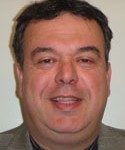Elder abuse, use of shelters rising
While the woman was living with a close family member, her money was being drained away by people overcharging for her grocery shopping, while her body and spirit were sapped by physical neglect and emotional torment.
National Family Caregivers Month
By Catherine Walsh, Marketing Communications, Intercity Home Care
November is National Alzheimer’s Awareness Month and it’s also National Family Caregivers Month. As we acknowledge both...
Emergency center, Mass. 2-1-1 helps with elderly concerns
Participants from over 80 state agencies and service organizations were not only discussing possible scenarios in which immediate action to save lives would be necessary, but making sure 2-1-1 was ready to handle the thousands of expected calls from people reporting power outages and flood damage and requesting emergency services.
Silent stroke leading to dementia
By Micha Shalev
A stroke can be dramatic—and devastating. As part of the brain is starved of its blood supply, cells may die. If a...
Clinical studies offer opportunities for family caregivers
By Rhonda R. Fletcher, Contributing Writer
REGION - One in five Americans, over 53 million, are caring for a family member in the United States.
In...
Oasis for Alzheimer’s sufferers to be built
The owners wanted a facility that would have the feel of luxurious hotel-style living, but with a home-like feel.
High-tech toilet seats popular with caregivers, elderly
They seem to be gaining ground quickly among baby boomers and those who care for the elderly, as well as those interested in high-tech and environmentally friendly products.
The new reality show: An elder in an empty apartment
By Marianne Delorey
I’ve never been much for reality TV, but there is one show that hits home in my profession. The show is Design...
Shining the light on caretakers
By Marianne Delorey
“Many brave things were done that night, but none were more brave than those done by men playing minute after minute...
How to care for an older adult during the summer months
Summer is a special time for caution if you or someone in your family is an older adult. I
















